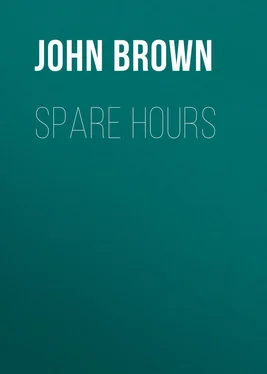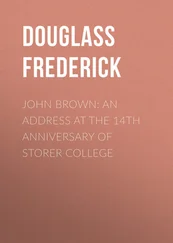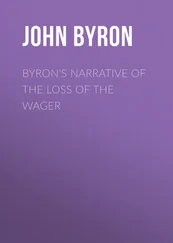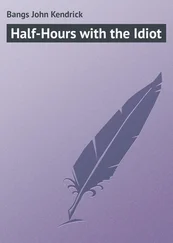John Brown - Spare Hours
Здесь есть возможность читать онлайн «John Brown - Spare Hours» — ознакомительный отрывок электронной книги совершенно бесплатно, а после прочтения отрывка купить полную версию. В некоторых случаях можно слушать аудио, скачать через торрент в формате fb2 и присутствует краткое содержание. ISBN: , Жанр: foreign_antique, foreign_prose, на английском языке. Описание произведения, (предисловие) а так же отзывы посетителей доступны на портале библиотеки ЛибКат.
- Название:Spare Hours
- Автор:
- Жанр:
- Год:неизвестен
- ISBN:http://www.gutenberg.org/ebooks/27153
- Рейтинг книги:4 / 5. Голосов: 1
-
Избранное:Добавить в избранное
- Отзывы:
-
Ваша оценка:
- 80
- 1
- 2
- 3
- 4
- 5
Spare Hours: краткое содержание, описание и аннотация
Предлагаем к чтению аннотацию, описание, краткое содержание или предисловие (зависит от того, что написал сам автор книги «Spare Hours»). Если вы не нашли необходимую информацию о книге — напишите в комментариях, мы постараемся отыскать её.
Spare Hours — читать онлайн ознакомительный отрывок
Ниже представлен текст книги, разбитый по страницам. Система сохранения места последней прочитанной страницы, позволяет с удобством читать онлайн бесплатно книгу «Spare Hours», без необходимости каждый раз заново искать на чём Вы остановились. Поставьте закладку, и сможете в любой момент перейти на страницу, на которой закончили чтение.
Интервал:
Закладка:
First of all, “brains,” in the painter, are not diligence, knowledge, skill, sensibility, a strong will, or a high aim, – he may have all these, and never paint anything so truly good and effective as the rugged woodcut we must all remember, of Apollyon bestriding the whole breadth of the way, and Christian girding at him like a man, in the old sixpenny Pilgrim’s Progress ; and a young medical student may have zeal, knowledge, ingenuity, attention, a good eye and a steady hand – he may be an accomplished anatomist, stethoscopist, histologist, and analyst; and yet, with all this, and all the lectures, and all the books, and all the sayings, and all the preparations, drawings, tables, and other helps of his teachers, crowded into his memory or his note-books, he may be beaten in treating a whitlow or a colic, by the nurse in the wards where he was clerk, or by the old country doctor who brought him into the world, and who listens with such humble wonder to his young friend’s account, on his coming home after each session, of all he had seen and done, – of all the last astonishing discoveries and operations of the day. What the painter wants, in addition to, and as the complement of, the other elements, is genius and sense ; what the doctor needs to crown and give worth and safety to his accomplishments, is sense and genius : in the first case, more of this, than of that; in the second, more of that, than of this. These are the “ Brains ” and the “ That .”
And what is genius? and what is sense? Genius is a peculiar native aptitude, or tendency, to any one calling or pursuit over all others. A man may have a genius for governing, for killing, or for curing the greatest number of men, and in the best possible manner: a man may have a genius for the fiddle, or his mission may be for the tight-rope, or the Jew’s harp; or it may be a natural turn for seeking, and finding, and teaching truth, and for doing the greatest possible good to mankind; or it may be a turn equally natural for seeking, and finding, and teaching a lie, and doing the maximum of mischief. It was as natural, as inevitable, for Wilkie to develop himself into a painter, and such a painter as we know him to have been, as it is for an acorn when planted to grow up into an oak, a specific quercus robur . But genius , and nothing else, is not enough, even for a painter; he must likewise have sense ; and what is sense? Sense drives, or ought to drive, the coach; sense regulates, combines, restrains, commands, all the rest – even the genius; and sense implies exactness and soundness, power and promptitude of mind.
Then for the young doctor, he must have as his main, his master faculty, SENSE – Brains – νοῦς, justness of mind, because his subject-matter is one in which principle works, rather than impulse, as in painting; the understanding has first to do with it, however much it is worthy of the full exercise of the feelings, and the affections. But all will not do, if GENIUS is not there, – a real turn for the profession. It may not be a liking for it – some of the best of its practitioners never really liked it, at least liked other things better; but there must be a fitness of faculty of body and mind for its full, constant, exact pursuit. This sense and this genius, such a special therapeutic gift, had Hippocrates, Sydenham, Pott, Pinel, John Hunter, Delpech, Dupuytren, Kellie, Cheyne, Baillie, and Abercrombie. We might, to pursue the subject, pick out painters who had much genius and little or no sense, and vice versâ ; and physicians and surgeons, who had sense without genius, and genius without sense, and some perhaps who had neither, and yet were noticeable, and, in their own sideways, useful men.
But our great object will be gained if we have given our young readers (and these remarks are addressed exclusively to students) any idea of what we mean, if we have made them think, and look inwards. The noble and sacred science you have entered on is large, difficult, and deep, beyond most others; it is every day becoming larger, deeper, and in many senses more difficult, more complicated and involved. It requires more than the average intellect, energy, attention, patience, and courage, and that singular but imperial quality, at once a gift and an acquirement, presence of mind – ἀγχινοία, or nearness of the νοῦς, as the subtle Greeks called it – than almost any other department of human thought and action, except perhaps that of ruling men. Therefore it is, that we hold it to be of paramount importance that the parents, teachers, and friends of youths intended for medicine, and above all, that those who examine them on their entering on their studies, should at least (we might safely go much farther) satisfy themselves as far as they can, that they are not below par in intelligence; they may be deficient and unapt, quâ medici , and yet, if taken in time, may make excellent men in other useful and honorable callings.
But suppose we have got the requisite amount and specific kind of capacity, how are we to fill it with its means; how are we to make it effectual for its end? On this point we say nothing, except that the fear now-a-days, is rather that the mind gets too much of too many things, than too little or too few. But this means of turning knowledge to action, making it what Bacon meant when he said it was power, invigorating the thinking substance – giving tone, and you may call it muscle and nerve, blood and bone, to the mind – a firm gripe, and a keen and sure eye; that we think, is far too little considered or cared for at present, as if the mere act of filling in everything forever into a poor lad’s brain, would give him the ability to make anything of it, and above all, the power to appropriate the small portions of true nutriment, and reject the dregs.
One comfort we have, that in the main, and in the last resort, there is really very little that can be done for any man by another. Begin with the sense and the genius – the keen appetite and the good digestion – and, amid all obstacles and hardships, the work goes on merrily and well; without these, we all know what a laborious affair, and a dismal, it is to make an incapable youth apply. Did any of you ever set yourselves to keep up artificial respiration, or to trudge about for a whole night with a narcotized victim of opium, or transfuse blood (your own perhaps) into a poor, fainting exanimate wretch? If so, you will have some idea of the heartless attempt, and its generally vain and miserable result, to make a dull student apprehend – a debauched, interested, knowing, or active in anything beyond the base of his brain – a weak, etiolated intellect hearty, and worth anything; and yet how many such are dragged through their dreary curricula , and by some miraculous process of cramming, and equally miraculous power of turning their insides out, get through their examinations: and then – what then? providentially, in most cases, they find their level; the broad daylight of the world – its shrewd and keen eye, its strong instinct of what can, and what cannot serve its purpose – puts all, except the poor object himself, to rights; happy is it for him if he turns to some new and more congenial pursuit in time.
But it may be asked, how are the brains to be strengthened, the sense quickened, the genius awakened, the affections raised – the whole man turned to the best account for the cure of his fellow-men? How are you, when physics and physiology are increasing so marvellously, and when the burden of knowledge, the quantity of transferable information, of registered facts, of current names – and such names! – is so infinite: how are you to enable a student to take all in, bear up under all, and use it as not abusing it, or being abused by it? You must invigorate the containing and sustaining mind, you must strengthen him from within, as well as fill him from without; you must discipline, nourish, edify, relieve, and refresh his entire nature; and how? We have no time to go at large into this, but we will indicate what we mean: – encourage languages, especially French and German, at the early part of their studies; encourage not merely the book knowledge, but the personal pursuit of natural history, of field botany, of geology, of zoology; give the young, fresh, unforgetting eye, exercise and free scope upon the infinite diversity and combination of natural colors, forms, substances, surfaces, weights, and sizes – everything, in a word, that will educate their eye or ear, their touch, taste, and smell, their sense of muscular resistance; encourage them by prizes, to make skeletons, preparations, and collections of any natural objects; and, above all, try and get hold of their affections, and make them put their hearts into their work. Let them, if possible, have the advantage of a regulated tutorial , as well as the ordinary professorial system. Let there be no excess in the number of classes and frequency of lectures. Let them be drilled in composition; by this we mean the writing and spelling of correct, plain English (a matter not of every-day occurrence, and not on the increase), – let them be directed to the best books of the old masters in medicine, and examined in them , – let them be encouraged in the use of a wholesome and manly literature. We do not mean popular or even modern literature – such as Emerson, Bulwer, or Alison, or the trash of inferior periodicals or novels – fashion, vanity, and the spirit of the age, will attract them readily enough to all these; we refer to the treasures of our elder and better authors. If our young medical student would take our advice, and for an hour or two twice a week take up a volume of Shakspeare, Cervantes, Milton, Dryden, Pope, Cowper, Montaigne, Addison, Defoe, Goldsmith, Fielding, Scott, Charles Lamb, Macaulay, Jeffrey, Sydney Smith, Helps, Thackeray, &c., not to mention authors on deeper and more sacred subjects – they would have happier and healthier minds, and make none the worse doctors. If they, by good fortune – for the tide has set in strong against the literæ humaniores – have come off with some Greek or Latin, we would supplicate for an ode of Horace, a couple of pages of Cicero or of Pliny once a month, and a page of Xenophon. French and German should be mastered either before or during the first years of study. They will never afterwards be acquired so easily or so thoroughly, and the want of them may be bitterly felt when too late.
Читать дальшеИнтервал:
Закладка:
Похожие книги на «Spare Hours»
Представляем Вашему вниманию похожие книги на «Spare Hours» списком для выбора. Мы отобрали схожую по названию и смыслу литературу в надежде предоставить читателям больше вариантов отыскать новые, интересные, ещё непрочитанные произведения.
Обсуждение, отзывы о книге «Spare Hours» и просто собственные мнения читателей. Оставьте ваши комментарии, напишите, что Вы думаете о произведении, его смысле или главных героях. Укажите что конкретно понравилось, а что нет, и почему Вы так считаете.












